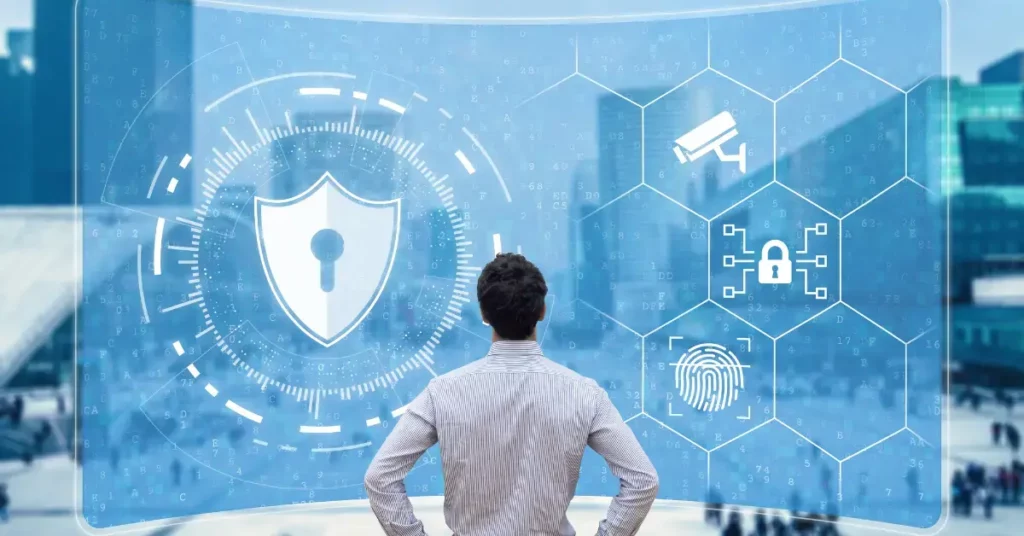How to Reduce Cybersecurity Costs in Recession
- May 16, 2023
Businesses are prone to two imminent threats these days – the economy and cybercrime. Following these challenges, CISOs had no choice but to watch spending patterns closely. Many businesses have fallen victim to cyberattacks in the last 12 months. Thus, raising concerns for businessmen to enhance the business security while managing the cost budget.
The Impact of Recession on IT and Technology
Table of Contents
It’s a double-edged sword. The initial challenge is related to productivity. During a downturn, businesses are more likely to analyze their team’s workload and seek alternatives to expensive labor. This often means investing in advanced business technology for process automation. Companies are exploring more cost-effective ways to leverage technology to reduce their reliance on human capital.
Businesses are endeavoring to streamline their processes by decreasing their internal expenditures while simultaneously seeking innovative methods to escalate revenue through digital means. Companies seek novel opportunities to engage customers using e-commerce and other digital platforms.
For example, take into account some of the manufacturing industries. Their business has been thriving as customer orders were exceeding their production capacity. However, during a recession, they must put on their thinking caps and brainstorm effective ways to keep their product sales going, maximize their sales opportunities, and obtain more clients.

Will Recession Affect the Cybersecurity?
- Cybercrime and Recessions – How & Why It Happens?
- A Comprehensive Approach to Cyber Defense
- Strengthening Your CyberSecurity with Advance IT

Cybercrime and Recessions - How & Why It Happens?
- During the 2008 economic crisis in the United Kingdom, GDP suffered a blow, plunging by 2.1%, while the number of fraud offenses skyrocketed, leaping by 7.3%.
- In the US, the FBI’s Internet Crime Complaints Center reported a staggering 22.3% increase in online crime complaints in 2009, during the height of the recession.
- In 2020, the monetary losses from digital fraud were 7.5 times higher than in 2009, indicating an alarming rise in cybercrime during economic crises.
A company’s passive approach to cybersecurity management is often the leading factor in why cybercriminals successfully carry out their schemes during economic hardships. In times of financial difficulty, allocating resources for preventative cybersecurity measures can be daunting, leaving companies vulnerable to fraud and other cyberattacks.
When businesses face financial hardships, their cybersecurity posture may suffer due to a reactive approach. Companies focus on keeping the ship afloat rather than taking proactive measures to fortify their cybersecurity defenses, such as implementing data encryption or risk management protocols.
A Comprehensive Approach to Cyber Defense
Effective cyber defense doesn’t always necessarily means breaking the bank. You can get a comprehensive security approach of a tech ecosystem while minimizing the risk gaps in protection that would leave the organization vulnerable to threats. Here are the following ways to build a strong cybersecurity framework:

Making Smart Security Choices
Since cybersecurity criminals always come up with the latest ways of breaching secure networks, cutting the cybersecurity cost is a huge concern. Also, investing blindly in expensive security tools isn’t a right move if organizations don’t have a strong security foundation.
CISOs will enhance organizational durability by methodically scrutinizing procedures such as consistent network surveillance and multifaceted validation, staying abreast of updates, capitalizing on resources, and concentrating on instruction. This will escalate their digital fortifications and universal security stance. Furthermore, implementing specialized cybersecurity instruments will reinforce these commendable practices while remaining cost-efficient.
Empowering Employees as Your First Line of Defense
Investing in employee training may seem like another expense, but it can be a major factor in maintaining a lean security budget. As human error takes the top spot for causing ransomware breaches – with a whopping 95% of cyber security issues attributed to it, according to the World Economic Forum – cyber security has become just as much a people problem as it is a technological one. An uninformed employee who falls prey to an attack can easily open a malicious email or click on a harmful link, unwittingly exposing their organization to the risk of stolen intellectual property or financial loss.
The upfront investment of time, cost, and resources dedicated to a proactive and ongoing training initiative pale compared to the potentially catastrophic consequences and expenses that a successful cybersecurity breach can inflict. Coaching your team on sound cyber practices and encouraging them to report any irregular or suspicious activity can halt an imminent attack before it even starts.
Managing Your Assets
Efficiently managing technological resources can be quite challenging, but having a centralized inventory of all the IT assets is of utmost importance. It’s crucial to stay on top of the lifespan of every IT asset to ensure that software stays updated and operational. Cyber security experts can help businesses maximize their resources by identifying and appropriately retiring any outdated equipment or software that is no longer useful or has reached the end of its useful life.
The key to plugging security gaps and protecting your hardware and software inventory lies in comprehending their whereabouts and fortification. Identifying lapses in security and glitches in configurations is vital in implementing and enforcing security procedures, ascertaining the existence of unmanaged devices, and scrutinizing user admission to critical systems. Ensuring all users enable multi-factor authentication is critical to ensuring a secure environment.
Outsourcing CyberSecurity
Consider entrusting your organization’s cybersecurity to Advanced IT if you’re financially constrained and unable to support multiple cybersecurity professionals. Outsourcing your security requirements may be more economical and can be customized to suit your organization’s unique demands, particularly during periods of financial downturn
Strengthen Your CyberSecurity with Advance IT
We will take a comprehensive look at your security and make expert recommendations/suggestions based on our findings. If there are any loopholes in your security, we will address them immediately. Also, we will highlight the areas in your security system where you are underspending or overspending to assist you in optimizing your IT security network. Thus, your business will remain secure, and you will be prepared to fight against the hardships of the economic crisis.
As anyone can expect, the first step to strengthening your network is to assess your security measures. What’s the level of your security, and what can you do to secure it further? The stats indicate that around 60% of businesses were forced to shut down their operations after a cyberattack. So, building a strong security foundation in your businesses is imperative. Advanced IT can help you with that.





